HS-LS1-3
Plan and conduct an investigation to provide evidence that feedback mechanisms maintain homeostasis.
-
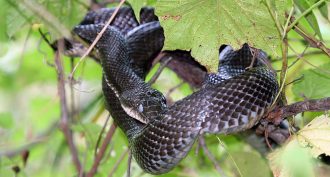 Animals
AnimalsSnakes go dark to soak in the sun
Snakes are paler in the South and darker in the North. The darker species absorb heat more quickly, a teen showed.
-
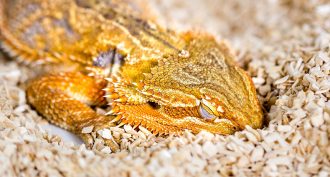 Brain
BrainDragons sleep like mammals and birds
Lizards seem to alternate between two sleep states, just as mammals and birds do. This finding could change our understanding of how sleep evolved.
-
 Brain
BrainLeft brain stands guard during sleepovers
Part of the left half of the brain remains on alert while the rest of the brain and body snooze.
-
 Chemistry
ChemistryGotcha! New test stalks diseases early
Chemists screen blood for disease markers by adapting a common DNA test. The test can find disease earlier, when it also may be easier to treat.
-
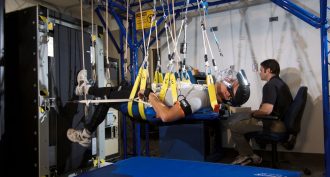 Health & Medicine
Health & MedicineCool Jobs: Researchers on the run
Researchers are taking running to extremes, from Olympic lizards to treadmills in space. The goal is to learn how athletes of all kinds can stay healthier.
-
 Health & Medicine
Health & MedicineAllergies linked to obesity and heart risks
Children and teens with asthma, allergies or other autoimmune conditions tend to be overweight and show symptoms of heart-disease risks, a new study finds.
By Tara Haelle -
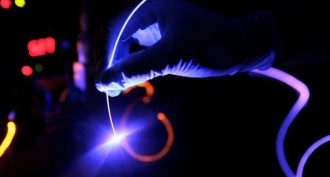 Tech
TechNew light on brain science
A combination of physics, biology and engineering lets scientists use light to trigger actions by specific brain cells. Called optogenetics, this technology is shining new light on how the brain works.
-
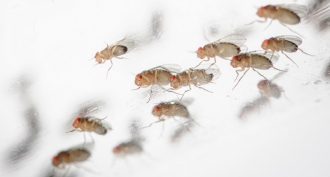 Health & Medicine
Health & MedicineCatching ZZZs may retrieve lost memories
Forgetful? Maybe you’ve forgotten to get enough shuteye. A study in fruit flies suggests that a good sleep can boost their ability to remember things.
-
 Health & Medicine
Health & MedicineScientists Say: Hormone
This is a chemical that travels in the blood and acts as a signal. It can tell distant body parts what to do. When a chemical acts in this way, it has a special name.
-
 Microbes
MicrobesLife’s ultra-slow lane is deep beneath the sea
Biologists had suspected the deep seafloor would be little more than barren sediment. But they found a surprising amount of oxygen — and life.
By Beth Geiger -
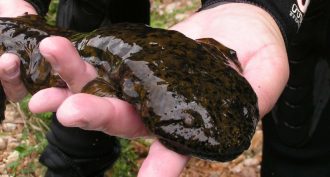 Animals
AnimalsHellbenders need help!
Hellbenders already face threats such as habitat loss, pollution and disease. But climate change could make matters worse. And the problems facing hellbenders could spell trouble for more than just these giant amphibians.
-
 Animals
AnimalsResilient hearts for deep-sea divers
How do aquatic mammals have enough energy to hunt prey while steeply dropping their heart rate to stay underwater? A new study of dolphins and seals provides clues.